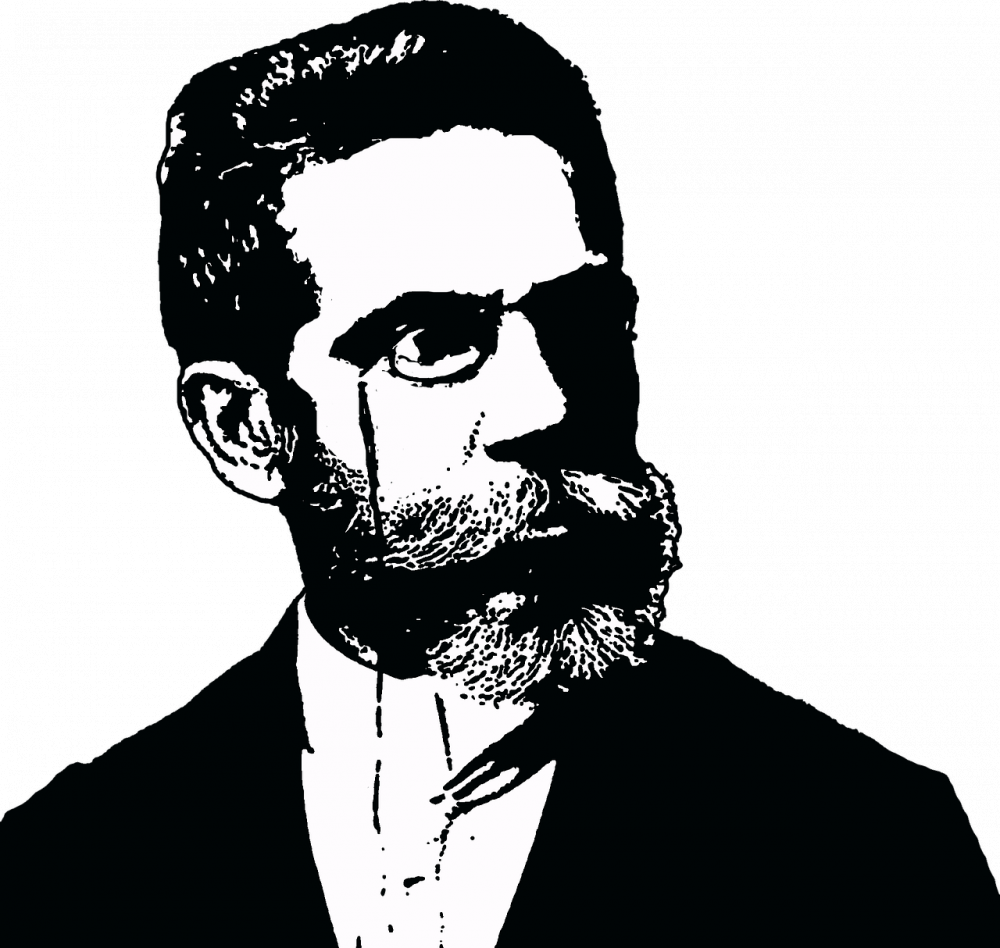George Orwell: A Master of Words and Vision

Introduction:
George Orwell, born Eric Arthur Blair in 1903, was a renowned British writer and journalist. He is widely celebrated for his thought-provoking novels, essays, and political commentaries, which continue to resonate with readers even today. Orwell’s works are highly regarded for their social criticism, insightful analysis of power dynamics, and prophetic vision of a dystopian future.
I. The Life and Influences of George Orwell:

A. Early Years and Education:
– Orwell was born in Motihari, India, during the British colonial period.
– His experiences in the British Imperial Police in Burma later influenced his writing.
– Orwell’s upbringing in an upper-middle-class family shaped his social and political views.
B. Literary Career and Pseudonym:
– Orwell chose to write under the pen name George Orwell, adopting his own unique literary persona.
– His first book, “Down and Out in Paris and London” (1933), drew from his experiences of poverty and homelessness.
– Orwell’s subsequent novels, such as “Burmese Days” (1934) and “Keep the Aspidistra Flying” (1936), explored themes of imperialism and class struggle.
C. Political Activism and the Spanish Civil War:
– Orwell’s involvement in the Spanish Civil War influenced his political beliefs and inspired the writing of his most famous works.
– He fought alongside the Republican forces and denounced the authoritarianism of both Fascism and Stalinism.
– Orwell’s personal experiences during this war led to the creation of his novel “Homage to Catalonia” (1938).
II. George Orwell’s Literary Contributions:
A. Satire and Social Commentary:
– Orwell’s satirical works, such as “Animal Farm” (1945), brilliantly expose the flaws of political systems and human nature.
– “Animal Farm” uses allegory to depict the corruption and hypocrisy of the Soviet Union under Joseph Stalin.
– This novella serves as a cautionary tale, emphasizing the importance of vigilance against the abuse of power.
B. Dystopian Fiction and “Nineteen Eighty-Four”:
– Orwell’s masterpiece, “Nineteen Eighty-Four” (1949), remains one of the most influential dystopian novels of all time.
– Set in a totalitarian regime, the novel explores themes of mass surveillance, psychological manipulation, and the erosion of individual freedom.
– Orwell’s chilling portrayal of a nightmarish future has become synonymous with oppressive regimes and the dangers of authoritarianism.
III. George Orwell’s Enduring Legacy:
A. Impact on Literature and Popular Culture:
– Orwell’s works have had a lasting impact on literature, inspiring subsequent generations of writers and thinkers.
– His concepts and ideas, such as “Big Brother” and “Newspeak,” have become cultural touchstones, referenced in various mediums.
– Orwell’s influence extends beyond literature, with phrases like “Orwellian” often used to describe situations involving government surveillance and propaganda.
B. Relevance in the Modern World:
– Orwell’s writings continue to resonate due to their prescience and relevance in today’s society.
– The rise of technology and the digital age has heightened concerns about privacy invasion and the manipulation of information.
– Orwell’s warnings serve as a reminder to remain vigilant in the face of encroachments on individual liberties.
In conclusion, George Orwell’s significant contributions to literature and social commentary make him a titan in the literary world. His insightful and thought-provoking works remain relevant, urging readers to question authority, challenge political systems, and protect individual freedoms. Through his enduring legacy, Orwell continues to captivate and inspire generations, acting as a powerful voice for truth and justice.
The Evolution of George Orwell Throughout History:
I. Early Life and Influences:
– Orwell’s upbringing and education shaped his perspectives on social and political issues.
– His experiences in British India and the Imperial Police in Burma laid the foundation for his criticism of imperialism and colonialism.
II. Political Awakening and Literary Beginnings:
– Orwell’s time in Spain during the Spanish Civil War solidified his opposition to totalitarian ideologies.
– He began writing novels and essays that highlighted the dangers of authoritarianism and the erosion of individual freedom.
III. Animal Farm and Allegory:
– The publication of “Animal Farm” brought Orwell widespread recognition and critical acclaim.
– The novel’s allegorical portrayal of the Soviet Union and Stalinism resonated with readers and further solidified Orwell’s reputation as a master storyteller.
IV. Nineteen Eighty-Four and Dystopian Vision:
– “Nineteen Eighty-Four” cemented Orwell’s position as a prophet of dystopian fiction.
– The novel’s portrayal of a surveillance society and the manipulation of truth continues to captivate readers and serve as a stark warning.
V. Orwell’s Legacy and Continuing Relevance:
– Orwell’s ideas and concepts pervade contemporary discussions on societal control, surveillance, and the dangers of unchecked power.
– His works have been adapted into films, referenced in popular culture, and continue to be taught in schools worldwide, ensuring his lasting legacy.
In summary, George Orwell’s evolution as a writer and his enduring relevance in society make him a literary giant. From his early works on imperialism to his seminal novels depicting political dystopia, Orwell’s contributions have left an indelible mark on literature and continue to resonate with readers. His ability to shed light on the complexities of power and the human condition ensures his place in history as a master of words and vision.
FAQ
What influenced George Orwells writing?
What were some of George Orwells most famous works?
Why is George Orwells work still relevant today?
Flere Nyheder
Fotobog: En personlig fortælling gemt i billeder
Introduction: George Orwell, born Eric Arthur Blair in 1903, was a renowned British writer and journalist. He is widely celebrated for his thought-provoking novels, essays, and political commentaries, which continue to resonate with readers even toda...
01 juni 2025
Erhvervsfotografens rolle i moderne virksomheder
Introduction: George Orwell, born Eric Arthur Blair in 1903, was a renowned British writer and journalist. He is widely celebrated for his thought-provoking novels, essays, and political commentaries, which continue to resonate with readers even toda...
05 maj 2025
Den Moderne Fotograf: Fra Hobby Til Professionel
Introduction: George Orwell, born Eric Arthur Blair in 1903, was a renowned British writer and journalist. He is widely celebrated for his thought-provoking novels, essays, and political commentaries, which continue to resonate with readers even toda...
01 november 2024
Retroplakater: Et Dyk Ned I Nostalgiens Verden
Introduction: George Orwell, born Eric Arthur Blair in 1903, was a renowned British writer and journalist. He is widely celebrated for his thought-provoking novels, essays, and political commentaries, which continue to resonate with readers even toda...
04 august 2024











